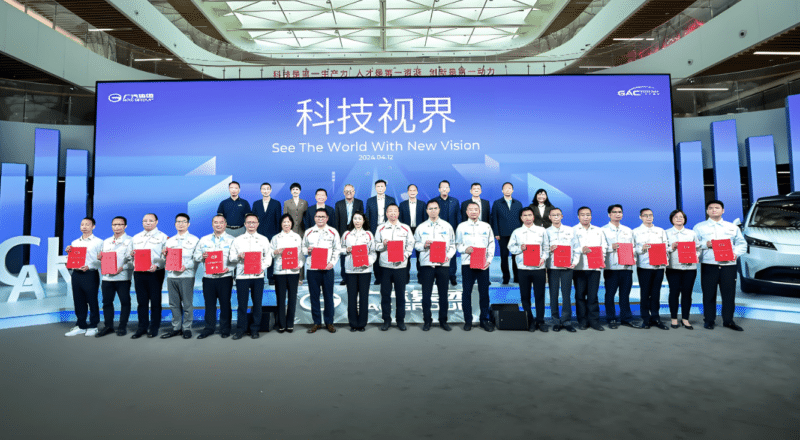GAC, the Chinese automaker, hosted the 2024 GAC Technology Day with the theme “Vision of Technology” in Guangzhou on April 12th. The tech-focused event introduced the first domestically developed image-based autonomous driving solution, the Garcia Intelligent Driving System, and a “high-security, high-capacity” solid-state power battery.
The Garcia Intelligent Driving System is a domestically developed image-based autonomous driving solution that eliminates the need for high-precision maps and relies less on LiDAR. It combines visual sensors with AI algorithms to provide users with a comprehensive, all-scenario driving experience. The system is said to excel in complex traffic situations, traffic signal recognition, handling dynamic scenarios, and making accurate driving decisions and actions in real time. This technology is similar to what Tesla is developing in its FSD autonomous driving program. GAC plans to deploy the Garcia system for mass production in 2026. Earlier this month it was announced that GAC Aion teamed up with Didi to build robotaxis. Furthermore, it was reported last month that BYD, Xpeng, and GAC Aion would use Nvidia chips as part of their autonomous driving tech stack.

In addition to intelligent driving, GAC showcased its “breakthrough” in solid-state power batteries. GAC reported that their self-developed solid-state battery “achieved significant energy density, safety, and manufacturing technology advancements. With the utilization of third-generation sponge silicon negative electrode plate technology and high-capacity solid-state positive electrode technology, GAC Aion successfully improved the battery’s energy density.” Solid-state batteries offer the potential to overcome the limitations of traditional liquid electrolyte batteries and have become a focal point in the global power battery competition.

The development of solid-state batteries is crucial for the future of electric vehicles and GAC aims to fully roll out this technology by 2026. With higher energy density, these batteries can provide longer driving ranges and shorter charging times, making electric vehicles more practical and convenient for everyday use. Solid-state batteries offer improved safety as they are less prone to overheating and lower the risk of fire or explosion than traditional lithium-ion batteries.



